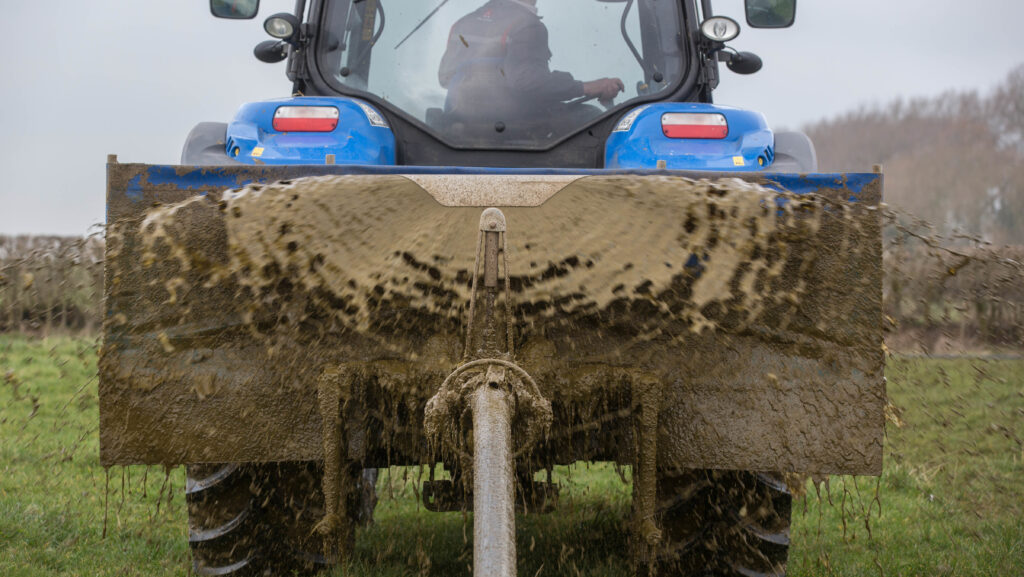Wet autumn piles pressure on slurry rules in Wales
 © Tim Scrivener
© Tim Scrivener A wet autumn in Wales is posing significant challenges for livestock farmers as they race to empty slurry stores before the imminent three-month ban on muck spreading, which runs from 15 October to 15 January.
Persistent rainfall has hindered farmers’ ability to spread slurry, raising concerns about storage capacity and potential environmental issues.
Since 1 August 2024, farmers must comply with nitrate vulnerable zone (NVZ) regulations that mandate storage capacity for slurry. Livestock (excluding pigs and poultry) must have five months of storage, while pigs and poultry require six months.
See also: Campaigners urge Welsh government to postpone final NVZ plans
NFU Cymru deputy president Abi Reader says the Welsh government’s “farming by calendar” approach is having a massive impact on farms and is really starting to hit home with the slurry spreading ban on the horizon.
Speaking at this week’s NFU Council meeting in Stoneleigh, Ms Reader noted that the Welsh government has provided only £17m grant funding, which is a fraction of the estimated £360m needed for compliance.
This limited support has left many farmers anxious about the upcoming regulations.
“That’s less than 5% of funding needed for the considerable investment farms will have to make,” she said.
Ms Reader said farming mental health charities are starting to see an increase in calls from farmers who are worried about how they are going to cope with the new rules this winter.
“There are people who are waiting for contracts to come. They are in a very long queue and the 15 October closed period is getting ever closer,” she added.
“We’ve also had a huge amount of wet weather which is making it very difficult.
“Some farmers are still waiting to get crops off before they can get the slurry out, so there’s going to be a lot of challenges.”
Leniency
In the Senedd this week, rural affairs secretary Huw Irranca-Davies indicated that Natural Resources Wales will show leniency in enforcing the ban for those farmers actively working to improve their slurry infrastructure.
He urged farmers to reach out for guidance if they have concerns about compliance.
Mr Irranca-Davies said: “Any exceptional circumstances which may prevent compliance would be considered on a case-by-case basis. But if any farmers are in doubt, contact NRW [Natural Resources Wales] and ask them.”
The Welsh government says the NVZ rules are required to reduce water pollution by nitrates from agricultural sources.
Further help to comply with NVZ rules
- Control of Agricultural Pollution Regulations Helpline (Adas): 01974 847000
- Farming Connect: 03456 000 813
- Natural Resources Wales (NRW) Helpline: 0300 065 3000
- Welsh government NVZ rules (PDF).
